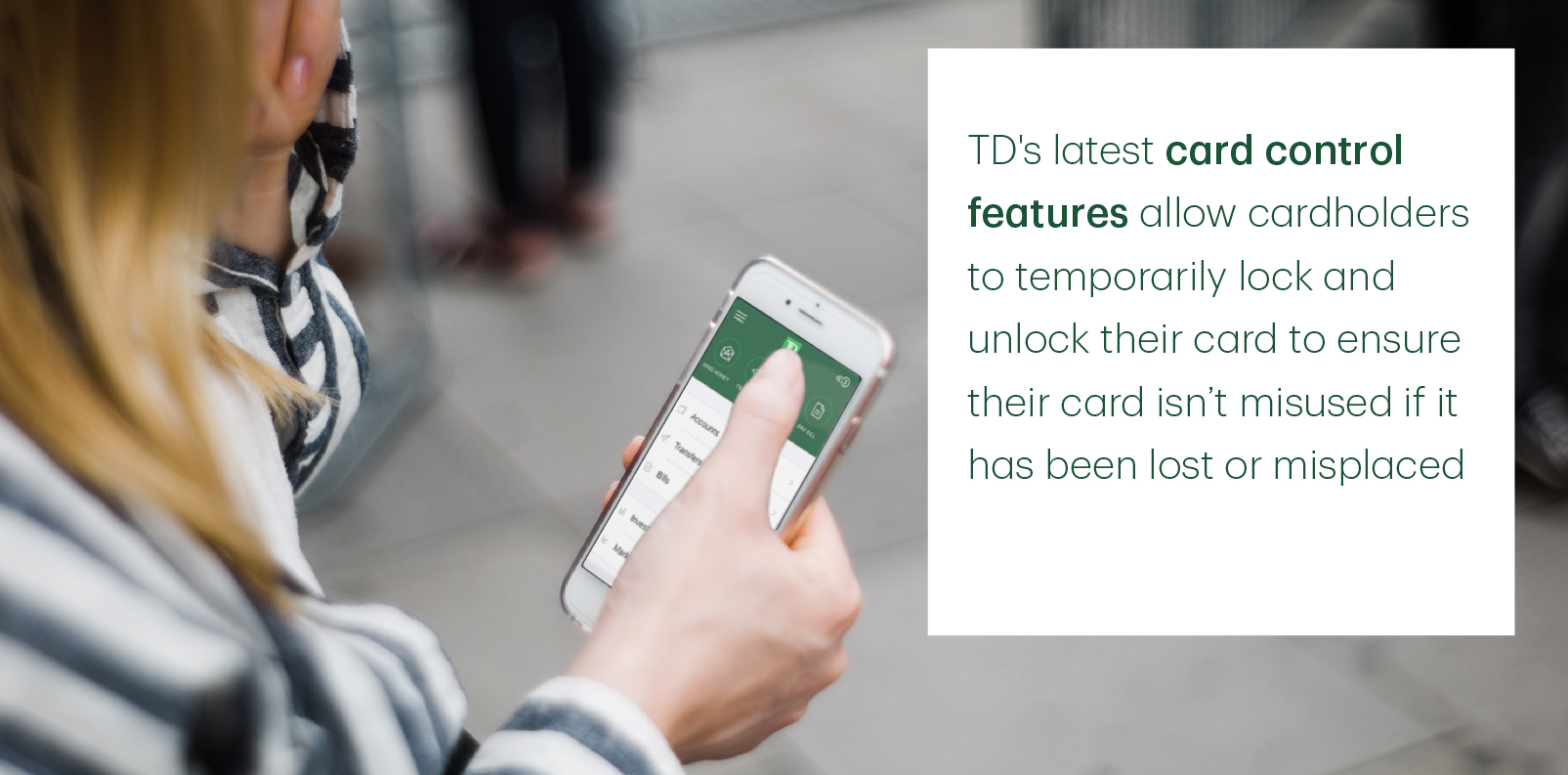You realize you've misplaced your wallet and it hits you… That sinking, stomach churning feeling. What do you do next? Staying calm and taking a few simple steps can help safeguard your identity and help prevent unauthorized charges until you find it.
If you're certain your wallet, credit card or banking card is gone, the first thing you should do is report it lost or stolen with your banking institution so they can prevent use of that card and account number. But if you think you've just misplaced a card or your wallet (maybe it's under the couch?), here are some steps you can take to help avoid fraud.
Temporarily block access to your credit cards
If you are really sure that you've simply misplaced your bank or credit card and are confident you'll find them, and if your bank or credit card company offers the ability to block debit or credit card transactions, enable this feature immediately to help prevent fraudulent purchases.
TD's latest card control features (available on all Canadian consumer TD Visa* credit cards) allow cardholders to temporary lock and unlock their credit card to ensure their card isn’t misused if it has been lost or misplaced. TD's card controls offer the ability to block any in-person, international credit card charges made outside of Canada, helping to eliminate the hassle of identifying and reporting fraudulent cross border charges. This first-in-Canada feature can be accessed through the TD Canada mobile app.

Note that when your card is locked, cardholders can't make new purchases or pay using their digital wallet, but pre-authorized payments, ATM transactions, and recurring charges will still go through as usual. Once the card is located, the temporary block can be easily removed.
Contact your bank
If you've come to the realization that your card or cards are permanently gone, contact your bank to cancel your debit and credit cards. It's helpful to have your account numbers handy and know when and where you misplaced your wallet, including the date and approximate time of your last purchase.
Before an event, create an inventory of your wallet
Jotting down everything you keep in your wallet before you've misplaced anything, including debit and credit cards will help keep you organized in the event you lose them or they are stolen. In the immediate aftermath of an event, you may not remember everything at once, so keep your list handy and add to it as more things come to mind. Keep copies of your most important documents so you have a record should you ever need them.
Monitor your accounts
Contact Equifax Canada or TransUnion and request that a fraud alert be put on your financial account to prevent fraudulent charges. Monitor your accounts for suspicious activity for the next 12 months—just in case—by reviewing your bank and credit card statements regularly. This is also good practice regardless of whether or not you've lost your wallet.
Set up fraud alerts on your personal banking accounts so that you can receive notifications via text if your bank detects suspicious activity on those accounts. Certain money management tools, like the TD MySpend app, can provide notifications of account activity in real-time to help customers quickly identify transactions that might be unusual.
*Trademark of Visa International Service Association and used under license
